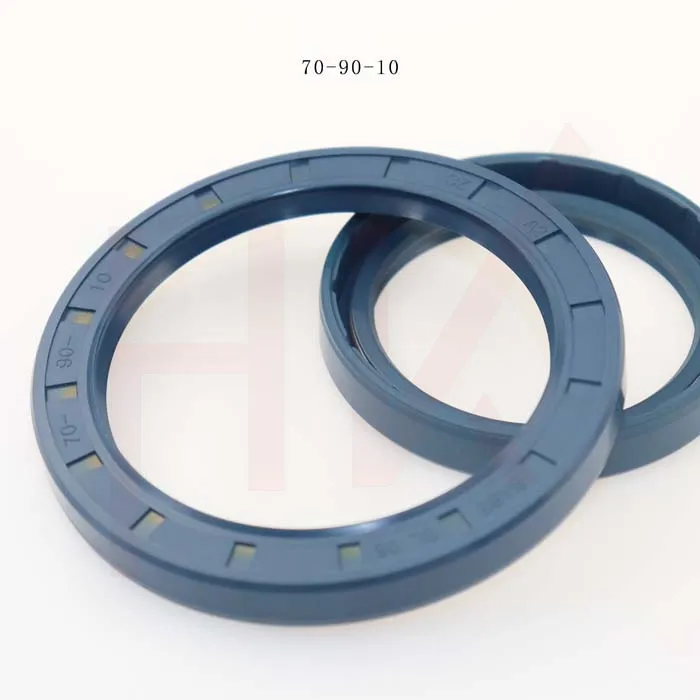វិច្ឆិកា . 13, 2024 13:53 Back to list
ptfe wiper seal
PTFE Wiper Seals An Overview
Wiper seals are a critical component in various mechanical systems, designed to prevent contaminants from entering and to retain lubricants within the system. Among the materials used for wiper seals, PTFE (Polytetrafluoroethylene) has gained significant popularity due to its unique properties. PTFE wiper seals are utilized extensively in different industries, including automotive, aerospace, and industrial machinery, owing to their effectiveness and durability.
What is PTFE?
Polytetrafluoroethylene, commonly known as PTFE, is a synthetic fluoropolymer composed of carbon and fluorine atoms. Its most recognized brand name is Teflon. PTFE is known for its non-stick properties, chemical resistance, and high thermal stability, making it an ideal material for various applications. The polymer’s low coefficient of friction enhances its ability to function in dynamic sealing applications, where minimal wear and tear is critical.
Advantages of PTFE Wiper Seals
1. Chemical Resistance One of the primary benefits of PTFE wiper seals is their outstanding resistance to chemicals. They can withstand exposure to aggressive substances, including acids, bases, and solvents, which would typically degrade other materials. This makes them suitable for use in hostile environments, where contact with such substances is inevitable.
2. Temperature Tolerance PTFE exhibits exceptional thermal stability. It can perform efficiently in a wide temperature range, typically from -200°C to +260°C (-328°F to +500°F). This resilience allows PTFE wiper seals to maintain their integrity even in extreme conditions, whether in high-temperature machinery or cold weather environments.
3. Low Friction and Wear The low friction properties of PTFE mean that wiper seals can operate with reduced resistance against movement. This feature not only prolongs the life of the seals but also enhances the overall efficiency of equipment. Wiper seals made from PTFE generate less heat during operation, thereby minimizing wear and extending service life.
ptfe wiper seal

4. Non-Stick Properties PTFE’s unique surface properties prevent contaminants from adhering to the seal. This characteristic is particularly beneficial in applications where dirt, dust, and other particulates may compromise sealing efficiency. A non-stick seal minimizes the chance of buildup, ensuring consistent performance over time.
5. Durability and Longevity PTFE wiper seals are engineered to resist aging and deformation, which means they can maintain their sealing capabilities longer than many other materials. This durability translates into reduced maintenance costs and less frequent replacements, providing long-term economical benefits.
Applications of PTFE Wiper Seals
Due to their unique properties, PTFE wiper seals are found in various applications. In the automotive industry, they are used in hydraulic systems, power steering mechanisms, and other critical points requiring reliable sealing solutions. In the aerospace sector, PTFE wiper seals manage critical fluid systems that operate under extreme conditions, ensuring functionality and safety.
In industrial machinery, PTFE seals are employed in hydraulic cylinders, pneumatic systems, and various types of pumps. Their excellent sealing capabilities help to maintain optimal performance while preventing leaks, which could lead to operational failures or safety hazards.
Conclusion
PTFE wiper seals represent a remarkable advancement in sealing technology, providing solutions for a variety of demanding applications. Their chemical resistance, thermal stability, low friction, and durability make them a preferred choice across different industries. As technology continues to evolve, the role of PTFE wiper seals in maintaining efficiency and reliability in mechanical systems will only grow, supporting a future where machinery can operate under more extreme conditions than ever before. Industries that prioritize performance and longevity in their equipment will increasingly turn to PTFE wiper seals as an essential component of their systems.
-
TCN Oil Seal Metal Ring Reinforcement for Heavy Machinery
NewsJul.25,2025
-
Rotary Lip Seal Spring-Loaded Design for High-Speed Applications
NewsJul.25,2025
-
Hydraulic Cylinder Seals Polyurethane Material for High-Impact Jobs
NewsJul.25,2025
-
High Pressure Oil Seal Polyurethane Coating Wear Resistance
NewsJul.25,2025
-
Dust Proof Seal Double Lip Design for Construction Equipment
NewsJul.25,2025
-
Hub Seal Polyurethane Wear Resistance in Agricultural Vehicles
NewsJul.25,2025
-
The Trans-formative Journey of Wheel Hub Oil Seals
NewsJun.06,2025
Products categories
















